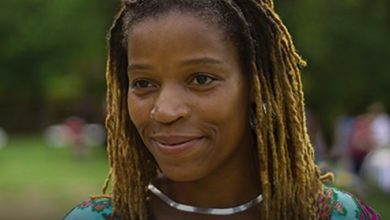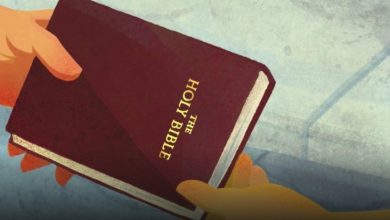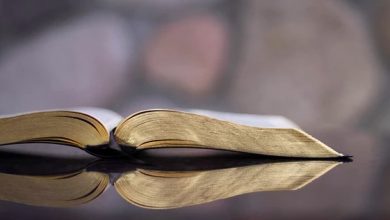Bearded Dragon Not Eating? 10 Solutions and Reasons
Bearded dragons are omnivores and eat a variety of vegetables, fruits and insects.They are usually enthusiastic eaters and have a strong desire for food. A bearded dragon not eating can be cause for concern and a symptom of a wider health issue.Like all pets, they can develop health problems from an improper diet or poor care and husbandry. The most common symptom of an unhealthy beardie is a lack of appetite.Is your dragon going on a hunger strike?Keep reading for a guide to the top 10 reasons why bearded dragons stop eating. We will also share 10 tips to get their appetite back…
Why Is My Bearded Dragon Not Eating?
Contents
A Bearded Dragon refusing to eat can be a sign of a health problem, the result of a poor diet, a natural behavior or bad husbandry. The following list contains the ten most common reasons for why a beardie is refusing their food:
Brumation and shedding are normal behaviors that can be concerning for new owners. They happen naturally for the duration of a dragon’s life.Lighting, temperature, and diet can all be corrected at home, but ideally they should be set up properly before bringing your lizard home. The remaining issues may require a vet.If an adult stops eating for more than a week, to make sure it is in good health, you should take it to a vet regardless of the reason. Juveniles should go to the vet after three days of not eating.For each of the reasons above we will now explain signs to look out for, why this is happening and most importantly, how to get them to start eating healthily again.
1. Brumation
In the winter bearded dragons go through a period of dormancy to help save energy, this is called brumation. Brumation starts in the winter as temperatures start to cool and daylight shortens.Brumation helps wild species save energy and increases their chances of survival and successful breeding. Many keepers who breed morphs encourage brumation in pet species for this reason.Many pet bearded dragons do not brumate because the temperature and lighting in their enclosures remain the same year round. But, those species with a view of a window may brumate regardless of consistent temperatures. Keepers should always make sure the enclosure is not in direct sunlight.During brumation, bearded dragons lose their appetites and dig themselves in to the substrate. They can sleep for three or four months!Brumation is natural behavior. If your beardie starts to brumate you should not try to stop it. Instead you should:
Brumating dragons slow down their metabolism. They can go for three months without a full meal, but they will still drink. Many will snack on occasion to maintain an energy store. Make sure you offer food once a week to a brumating dragon and keep a constant supply of water in the enclosure.As the lighting outside begins to become brighter in the spring, he should become active again and you can return to normal tank conditions and feeding schedules. After brumation, his appetite will return quickly and he should begin to eat again after five to seven days.Overall, if your dragon starts to slow down in the early winter, he may be getting ready to brumate. Your bearded dragon will eat very little during this process and this is not cause for concern unless he starts losing significant weight.
2. Shedding
As bearded dragons grow they shed their outer layer of skin in a process called ecdysis. During this process their skin becomes white and papery, and is rubbed off in patches.Depending on the age of the bearded dragon, the frequency and length of shedding varies widely.A large adult may take two weeks to fully shed. A juvenile may finish shedding in a day or two. Younger dragons can shed every month and sometimes every two weeks as they go through their most rapid growth. Older adults may shed only twice a year.If you notice your bearded dragon is not eating as much as normal, check to see if he is about to shed. If you notice white papery skin, this is the likely cause.Before and during shedding beardies may eat less or not at all. They should be eating normally within a week after shedding. He will start to eat again after most of his skin has been shed.Some individuals, especially hatchlings and juveniles, do not lose their appetite and will continue to eat.Shedding happens throughout their entire life. The pattern of a reduced appetite with shedding becomes routine for long-time owners. For first time keepers it can cause concern and take some getting used to.Brief fasting during shedding should not impact their weight, though they may become slightly lethargic and irritable. Give them time and do not try and handle them, unless you are helping with stuck shed.
3. UVB Lighting
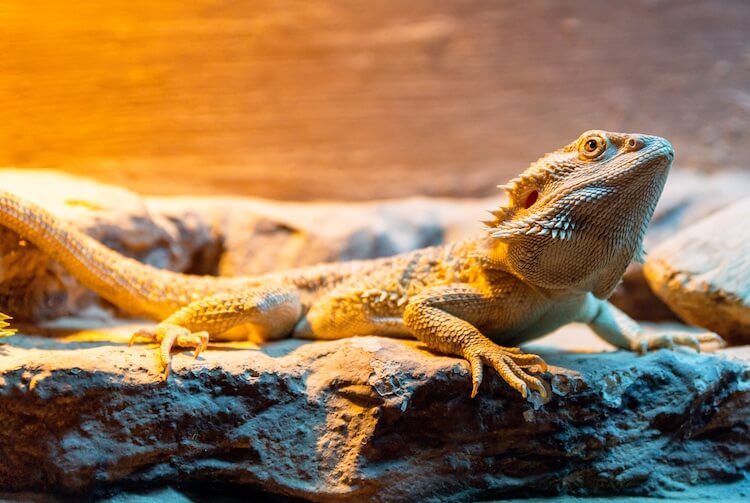
4. Cold Tank Temperature
Bearded dragons are native to the scrublands of Australia and are considered a type of desert lizard. If your bearded dragon consistently won’t eat, one of the first things you should check is enclosure temperature.Dragons that are consistently exposed to temperatures that are too low can have trouble digesting food. They may also develop a weakened immune system.Bearded dragons need a basking spot of 95 to 105°F. Night-time temperatures should be no lower than 75°F, but this can be decreased slightly during brumation. Temperatures should be checked with a thermometer several times a day to make sure they remain within the right range.These lizards are cold-blooded and rely on tank temperature for energy. They will not eat until they are fully warmed up. They also need the tank to remain warm for three hours after eating to help with digestion.Because of these reasons, many beardies are not ready to eat first thing in the morning. Bearded dragons should always be fed in the afternoon.Cold temperatures are a common reason for a bearded dragon to not eat, but that can be fixed easily. Consistently low temperatures can lead to more serious illnesses. If your dragon is wheezing or has discharge from its nose and mouth, it may have a respiratory infection and should be taken to a vet.
5. Impaction
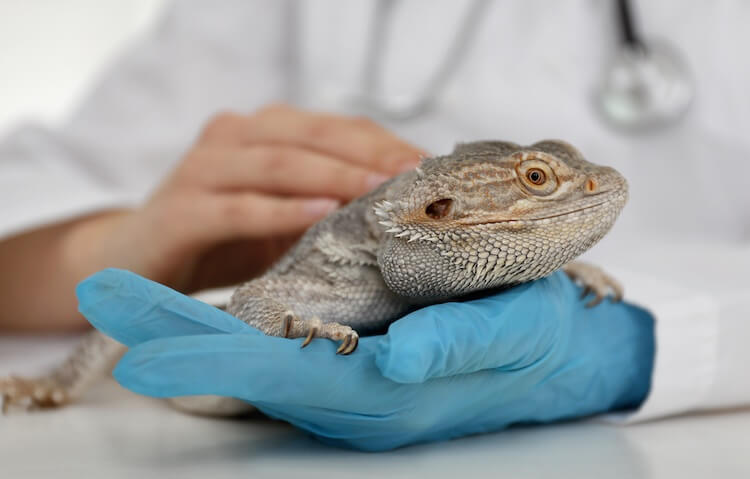
6. Parasites
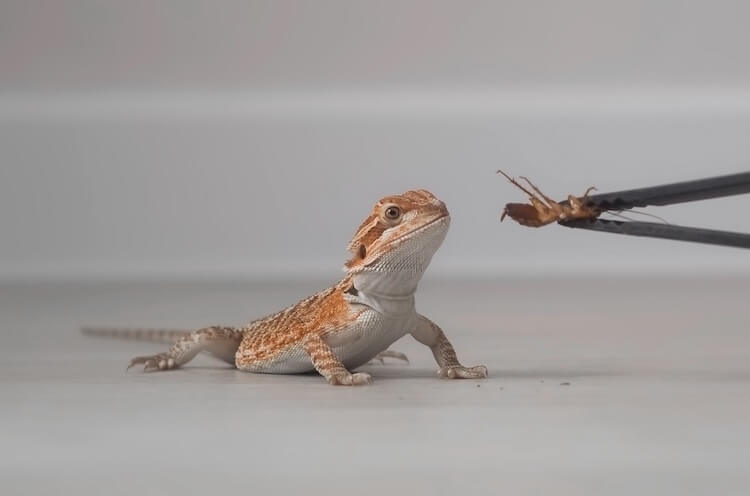
7. Stress
Not eating is the number one sign of stress in bearded dragons. Refusing food, lower activity levels, increased aggression, black beards, pacing and glass surfing are all signs of stress.There are many causes of chronic stress:
- Wrong tank temperature or humidity.
- Small enclosure (less than 75-gallons).
- Aggressive tank mates.
- Bad diet.
- Improper handling.
- Illness.
Out of all reasons on this list for why a bearded dragon is not eating, stress is the most difficult to understand. If your pet appears stressed, then begin going through the possible reasons above, starting with temperature and moving down the list.It is normal for bearded dragons to be stressed when first brought home. This stress is not chronic and should reduce quickly within the first week.
8. Wrong Diet
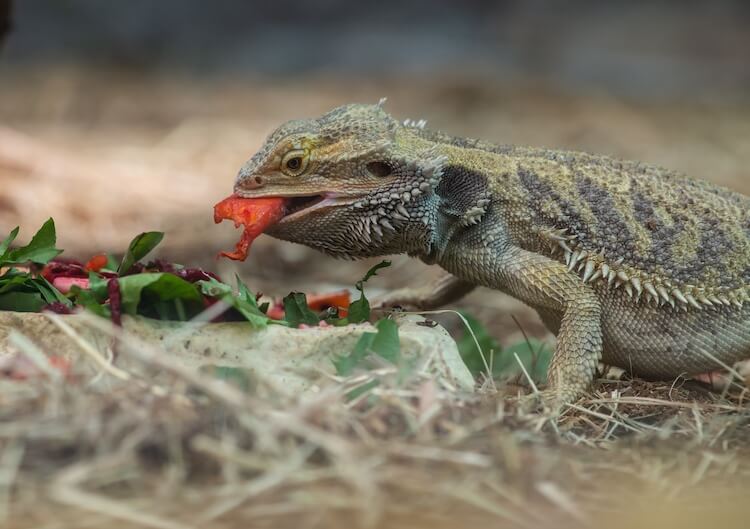
9. Vitamin Deficiency
There are several vitamins that bearded dragons need to stay healthy. Vitamin E, A, and B1 are all very important to their diet.A Vitamin E deficiency can cause a lack of appetite, but it is very rare.Vitamin D is the vitamin that many bearded dragons lack. Calcium supplements are often mixed with vitamin D3, so dusting food with a calcium supplement will prevent any deficiency.Feeding a balanced diet that has lots of leafy vegetables will prevent most, if not all, vitamin deficiencies.Bearded dragons that are recovering from a hunger strike are more likely to have a deficiency.If you think your lizard might have a vitamin deficiency then take him to a vet to check his blood vitamin levels. Trying to self-dose your beardie with vitamins can result in an overdose.
10. Injury
An injured bearded dragon is likely to stop eating, especially if the injury is bad. Severe or infected injuries should always be treated by a vet.There are many potential causes of injury, although most of them are easily prevented:
- Sharp and abrasive edges on tank décor can cause injuries, especially on their soft stomachs and toes. Make sure all décor is suitable for reptiles and does not have any sharp edges or corners.
- Beardies should be housed alone. Males can be highly territorial when kept in the same enclosure; they are likely to fight and cause injuries to each other.
- Allowing live insects to roam your bearded dragon’s enclosure can cause an injury. Large crickets have been known to chew on lizards’ feet and tails. These wounds can then become infected.
Minor injuries can be cleaned at home with warm water and an antibiotic. Usually, a small cut will not stop your bearded dragon from eating unless it is infected.
Summary
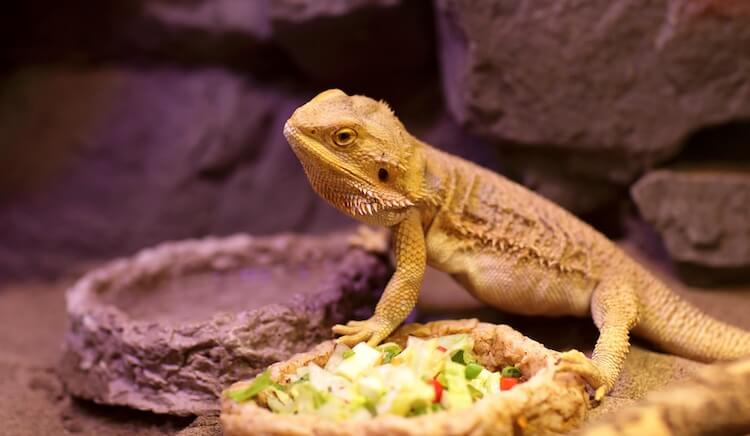
Last, Wallx.net sent you details about the topic “Bearded Dragon Not Eating? 10 Solutions and Reasons❤️️”.Hope with useful information that the article “Bearded Dragon Not Eating? 10 Solutions and Reasons” It will help readers to be more interested in “Bearded Dragon Not Eating? 10 Solutions and Reasons [ ❤️️❤️️ ]”.
Posts “Bearded Dragon Not Eating? 10 Solutions and Reasons” posted by on 2021-08-12 05:16:28. Thank you for reading the article at wallx.net



